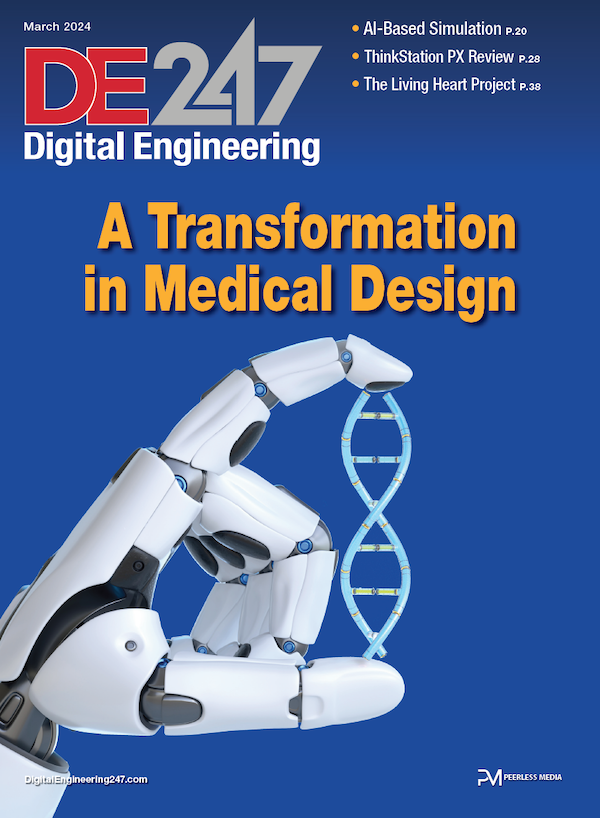October 1, 2017
 Editor’s Note: Tony Abbey works as training manager for NAFEMS, responsible for developing and implementing training classes, including a wide range of e-learning classes. Check out the range of courses available, including Intro to FEA at nafems.org/e-learning.
Editor’s Note: Tony Abbey works as training manager for NAFEMS, responsible for developing and implementing training classes, including a wide range of e-learning classes. Check out the range of courses available, including Intro to FEA at nafems.org/e-learning.
For most people, networking is the main reason for attending a conference. This is also the most difficult motivation to justify to your boss. It’s intangible, yet it will certainly help you and it may very well help the company. What’s great about networking is that it never stops. During session breaks, workshops, evening events, even at check-in and checkout, there is always an opportunity to meet and talk to industry people.
Social networking is an uncomfortable experience for many of us, but a conference setting is different. There are many areas of shared interest that come up even during brief conversations that networking can occur naturally. If you are a one-man band, or work in a small team, it’s great to get out and see that your challenges are, in fact, shared challenges.
Presenting Papers
Presenting a conference paper is daunting to many. I get nervous even after 40 years. However, if you can overcome inhibitions, it is the pinnacle of networking activity. A good paper, well presented, will stimulate interest and get you known among your peers.
My favorite papers tell an interesting engineering story. What was the challenge? How did the engineer tackle it? And the punch line—how were those challenges overcome? Even when it is an analysis technique I’ve seen many times before, it’s always interesting to hear it in a new context. As a counterpoint, I stopped going to research-oriented conferences a long time ago. Fifteen-minute summaries of esoteric theories usually just leave me with a headache.
Continuing Education
Many people attend conferences to reinforce their knowledge in specific areas. It’s a good idea to target papers of interest and have a roadmap. Good abstracts help nail relevant papers. This is where multiple track conferences can be a mixed blessing: there is a lot more content, but the logistics of getting from hall A to hall Z can be challenging. Well-organized conferences with a good track record of timekeeping give the best opportunity for cherry-picking.
My first conference was many years ago at Swansea University. My company was exploring new methodologies in fracture mechanics. I attended a paper given by a recent Ph.D., and the work reported fit exactly within our objectives. The result was photocopying a bound copy of his 400-page thesis. For the next 18 months, this was our instruction manual as we turned the theory into a working method.
Two friends impressed me at a conference a few years ago. They were on a mission to find best practices in a specific finite element analysis (FEA) technology area, and to find out what competing companies were doing in that field. They had a plan that included targeted papers, vendors and the scope of a report back to their company. I’m sure that promised deliverable had a lot to do with the expense justification.
The Vendors
Association conferences, such as an AIAA (American Institute of Aeronautics and Astronautics), SAMPE (Society for the Advancement of Material and Process Engineering), NAFEMS, etc., bring together a range of vendors in one place. If you’re trying to get a handle on available technology, or shopping for a new FEA solution, it’s a great place to start. You’re not going to complete a full evaluation in half an hour, but you will get a good sense of the software’s look and feel and its broad capabilities. If you get lucky, you may find engaging technical staff who will be keen to tell you more about their products.
A conference experience is very much about deciding what you hope to gain. If you want to have a fun few days, meet up with old colleagues, make some new friends and maybe pick up some information in passing, then in my book, there’s nothing wrong with that. On the other hand, if you’re on a mission and you want to get maximum payback from your attendance, with good planning and execution, you stand a good chance of success. If you find the conference doesn’t deliver for you—and that sometimes happens—treat it as a lesson learned and take it off of your calendar for next year.
Editor’s note: Tony will be presenting a range of mini training sessions at CAASE 2018 (June 5-7, Cleveland, OH).
More NAFEMS Coverage
Subscribe to our FREE magazine, FREE email newsletters or both!
About the Author
Tony Abbey is a consultant analyst with his own company, FETraining. He also works as training manager for NAFEMS, responsible for developing and implementing training classes, including e-learning classes. Send e-mail about this article to [email protected].
Follow DE





